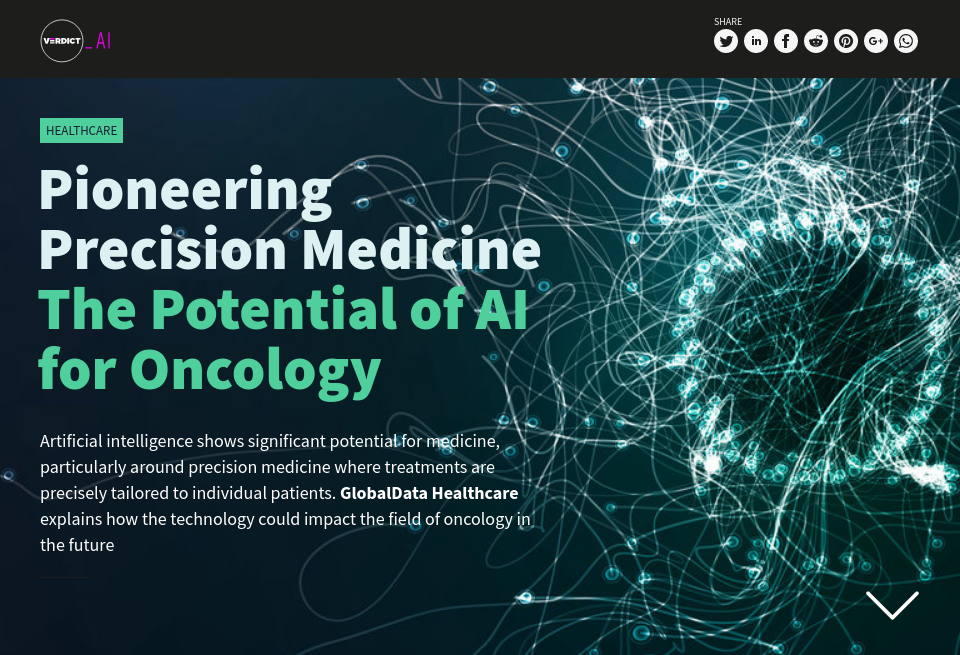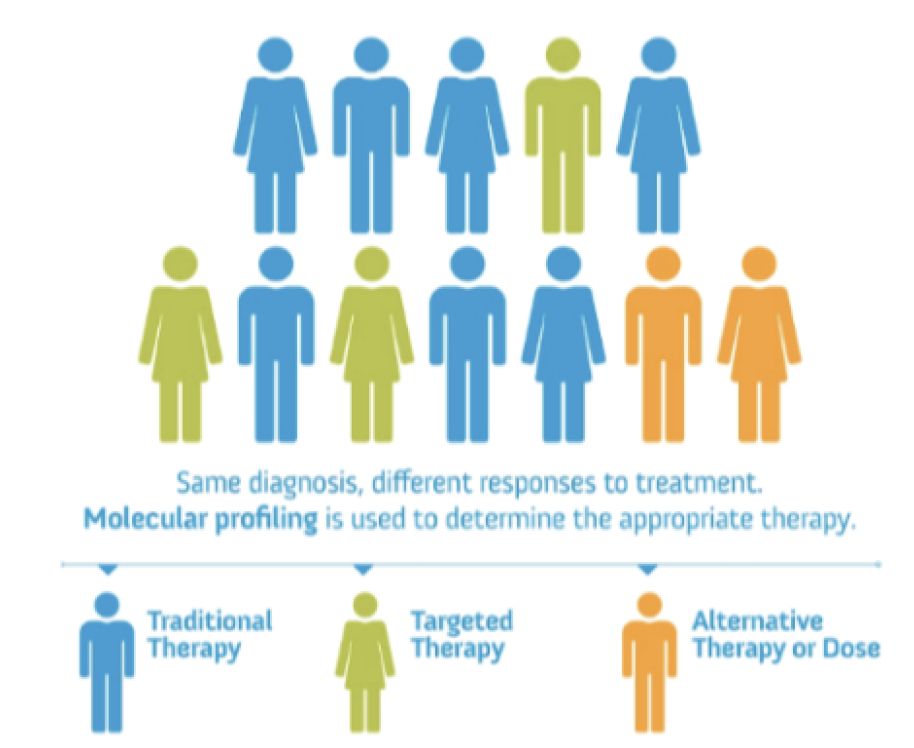Precision Medicine: How AI is Helping Doctors Tailor Treatments to Individual Patients
Are you ready to discover the cutting-edge world of precision medicine and its potential for personalized patient care? Let’s delve into the role of diagnostic testing in precision medicine and explore the impact of artificial intelligence on healthcare.
The Role of Diagnostic Testing in Precision Medicine and More!

Diagnostic testing is a crucial aspect of precision medicine, which involves tailoring treatment plans based on individual patients’ genetics, lifestyle, and environment. By identifying biomarkers and genetic variants that contribute to disease, clinicians can more accurately diagnose and treat patients, leading to better outcomes and potentially fewer side effects.
For example, identifying genetic mutations in cancer patients can guide treatment decisions such as targeted therapies, immunotherapies, or chemotherapy. Diagnostic testing can also help identify genetic risk factors for inherited conditions such as cystic fibrosis, sickle cell anemia, and Huntington’s disease, allowing for earlier intervention and better disease management.
Moreover, diagnostic testing enables clinicians to monitor disease progression and treatment response, providing a way to optimize therapies and adjust dosages as needed. In some cases, diagnostic testing can even help prevent disease altogether by identifying disease risk factors and implementing preventative measures such as screening and lifestyle modifications.
Pioneering Precision Medicine: The Potential of AI for Oncology

Artificial intelligence (AI) is poised to revolutionize healthcare, particularly in the field of oncology. Machine learning algorithms can analyze vast amounts of medical data, including imaging scans, electronic health records, and genomic data, to develop predictive models that can guide treatment decisions and improve patient outcomes.
For example, AI can help identify suspicious tumors and guide biopsies, reducing the need for unnecessary procedures and improving diagnostic accuracy. AI can also help predict patient response to specific treatments, enabling clinicians to choose the most effective therapies and avoid those that may cause harm.
Moreover, AI can facilitate clinical research by identifying potential study participants and recruiting patients who are most likely to benefit from new therapies. By reducing the time and cost associated with clinical trials, AI can accelerate the development of new treatments and bring them to market more quickly.
Artificial Intelligence for Precision Medicine and Better Healthcare

AI has numerous applications beyond oncology, including drug discovery, medical imaging, and personalized treatment plans. By modeling biological processes and predicting their impact on disease, AI can guide drug development and lead to more effective treatments. By analyzing medical images and identifying patterns that are too subtle for the human eye, AI can help detect early signs of disease and improve diagnostic accuracy.
Moreover, AI can help clinicians develop personalized treatment plans by integrating patient data such as genetic information, medical history, and lifestyle factors. By considering a patient’s unique characteristics, AI can more accurately predict treatment response and guide personalized care.
Enabling Technologies for Personalized and Precision Medicine: Trends

Technological advances are driving the growth of precision medicine, enabling clinicians to collect and analyze massive amounts of data and develop personalized treatment plans. One key technology is genomic sequencing, which allows for the identification of genetic variants that contribute to disease and can guide treatment decisions.
Another important technology is wearable devices, which can track physiological parameters such as heart rate, blood pressure, and sleep quality. By collecting real-time data on patient health, wearable devices can facilitate early detection of disease and guide preventative measures.
In addition, telemedicine and remote monitoring technologies are enabling patients to receive care from the comfort of their own homes, reducing the burden on the healthcare system and improving access to care. By enabling patients and clinicians to communicate and share data remotely, these technologies can facilitate personalized and coordinated care.
Op-Ed: Challenging the Hype over Personalized Medicine

While precision medicine holds great promise for improving patient outcomes and reducing healthcare costs, it is not without its challenges. Some critics have questioned the validity of biomarkers and the cost-effectiveness of personalized treatments compared to more traditional interventions.
Moreover, concerns have been raised about the potential for data privacy breaches and discrimination based on genetic information. As precision medicine becomes more widespread, it is essential to address these ethical and legal concerns and ensure that patients’ rights and privacy are protected.
Conclusion
Precision medicine and artificial intelligence are transforming healthcare, providing new ways to identify and treat disease and improve patient outcomes. These cutting-edge technologies are driving the growth of personalized and precision medicine, facilitating more accurate diagnosis, more effective treatments, and better disease management.
As precision medicine continues to evolve, it is essential to address the ethical, legal, and social implications of these technologies and ensure that patients’ rights and privacy are protected. By harnessing the power of AI and other enabling technologies, clinicians can provide more personalized and coordinated care, leading to better health outcomes and a healthier society.

Source image : verdict-ai.nridigital.com

Source image : medium.com

Source image : lifebritelabs.com

Source image : www.kdnuggets.com

Source image : www.cell.com




